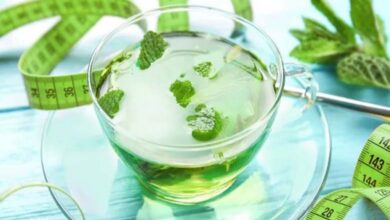How Cosmetics Can Affect Your Child’s Development

In a world saturated with cosmetics and personal care products, growing concern surrounds their potential impact on children’s health and development. While these products are designed to enhance beauty or comfort, some contain chemicals that may interfere with physical and cognitive development—especially in children, who are particularly vulnerable to toxic exposures.
-
Virtual Autism in Children: Worrying Behaviors Caused by Excessive Screen Time
-
The dangers of overuse of antibiotics in children
Early Exposure to Harmful Chemicals
Children can be exposed to cosmetic products from a very young age, either directly—through lotions, creams, or wipes applied to their skin—or indirectly by inhaling volatile compounds released into the air. This early exposure is alarming, as children’s bodies are still developing, making them more susceptible to chemical interference, especially from endocrine-disrupting substances.
These substances, which include parabens, phthalates, and triclosan, can interfere with the body’s hormone systems. Research has linked them to early puberty, reproductive issues in adulthood, and even behavioral and learning difficulties. Although exposure levels might seem minimal, the cumulative effect over time could pose a serious risk.
-
“Be Careful” Raises an Anxious and Hesitant Child… What Are the Best Alternatives?
-
What Causes Ear Infections in Children?
Potential Effects on Brain and Behavioral Development
There is increasing evidence that early and prolonged exposure to certain cosmetic chemicals may impact a child’s brain development. Solvents, artificial fragrances, and preservatives can potentially alter brain structure and function, leading to memory issues, reduced attention span, and difficulty concentrating. These effects are particularly concerning during early childhood, a critical period for neurological growth.
Parental Responsibility and the Need for Awareness
To protect their children, parents must be more cautious in choosing cosmetic products. Selecting natural or certified organic products, free of artificial fragrances and harsh preservatives, is strongly advised. Products containing nanoparticles or artificial coloring should also be avoided, especially if used frequently.
-
Recurrent Ear Infections in Children: Causes and Treatment Options
-
Why You Should Not Use Food as a Reward for Your Child
Educating children about these risks is also crucial. Teaching them good hygiene habits and helping them understand why certain products may not be safe can significantly reduce unnecessary exposure.
Cosmetics are a daily reality in modern life, but their impact on children’s health should not be underestimated. Given their thinner skin and immature metabolic systems, children are more prone to absorbing harmful chemicals. Making informed choices, switching to safer alternatives, and adopting basic precautionary measures can make a significant difference in ensuring a child’s healthy and balanced development.












